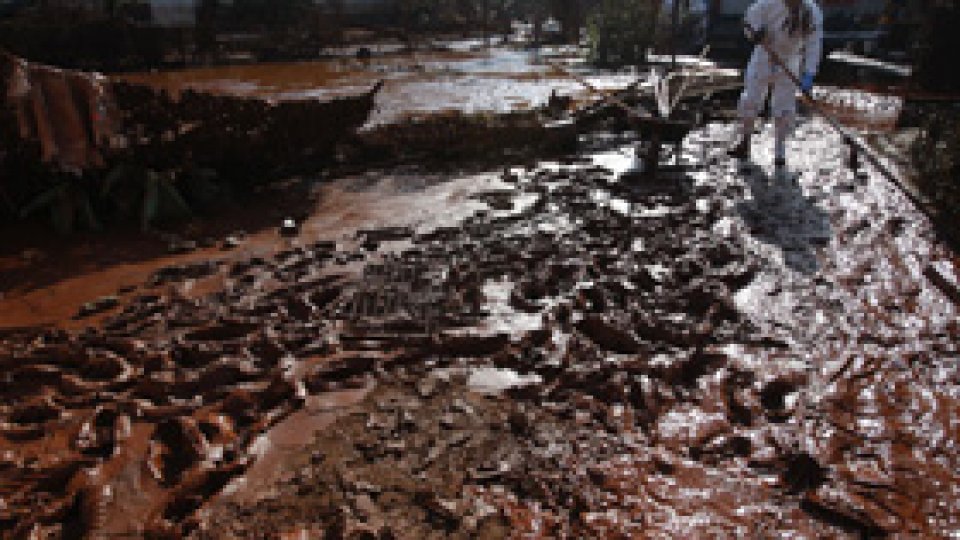Spotlight on Europe: environmental accident in Hungary
Romanian authorities are keeping a close eye on the quality of the Danube waters following the spill of toxic sludge caused by an accident that took place on Monday night in Hungary.

10 Octombrie 2010, 16:48
The reservoir of a local aluminium plant in Ajka, 160 km west of Budapest, bust on Monday for unidentified reasons and released one million cubic metres of red sludge into the nearby villages. The red sludge is an aluminium production toxic residue, which causes skin burns and eye irritation. The government on Tuesday declared a state of emergency in the west of the country.
This environmental disaster, in the words of Zoltan Illes, state secretary for the environment, has already killed 4 people and injured 120. 6 people are still reported missing. According to preliminary estimates, the damages amount to 5 to 10 million euros. Hungarian authorities are making efforts to contain the spill. Zoltan Illes said the plant carried out its work after the accident occurred and that there was suspicion that it had stored more red sludge in the reservoir than was allowed. Illes said he asked the company owning the plant to take steps to stop the sludge spill.
The representatives of the company, however, said they do not feel responsible for the situation and that they do not understand why it was decided to suspend the plant’s production activity. The sludge has reached the Marcal River, while experts try to dilute and neutralise the chemical residue along several sections of the river using special substances and tonnes of plaster and thus prevent pollution from spreading into the Raba river and the Danube.
Authorities in Bucharest said they were not worried yet. According to a release of the Ministry of Environment, pollution on Romanian rivers is not expected to exceed the allowed level within the next 24 hours. The environment minister Laszlo Borbely has contacted Hungarian authorities who assured him that the Romanian section of the Danube faced no threat of pollution.
The director of the Water Management Agency in Caras Severin county, Dorin Gavril, told the media that in the opinion of experts, the polluted water would reach the Romanian borders in a week’s time, but that the concentration of polluters would be lower compared to the levels reached in Hungary. Greenpeace said it was shocked by “the cynical attitude of the chemical plant management.”
The director of Greenpeace Hungary said the crack in the reservoir dam had already been visible on satellite images one day before the accident occurred. The management of the aluminium plant says that despite the spill, 96 to 98% of its chemical substances remained in the reservoir and that repair work was under way to prevent further spills.














